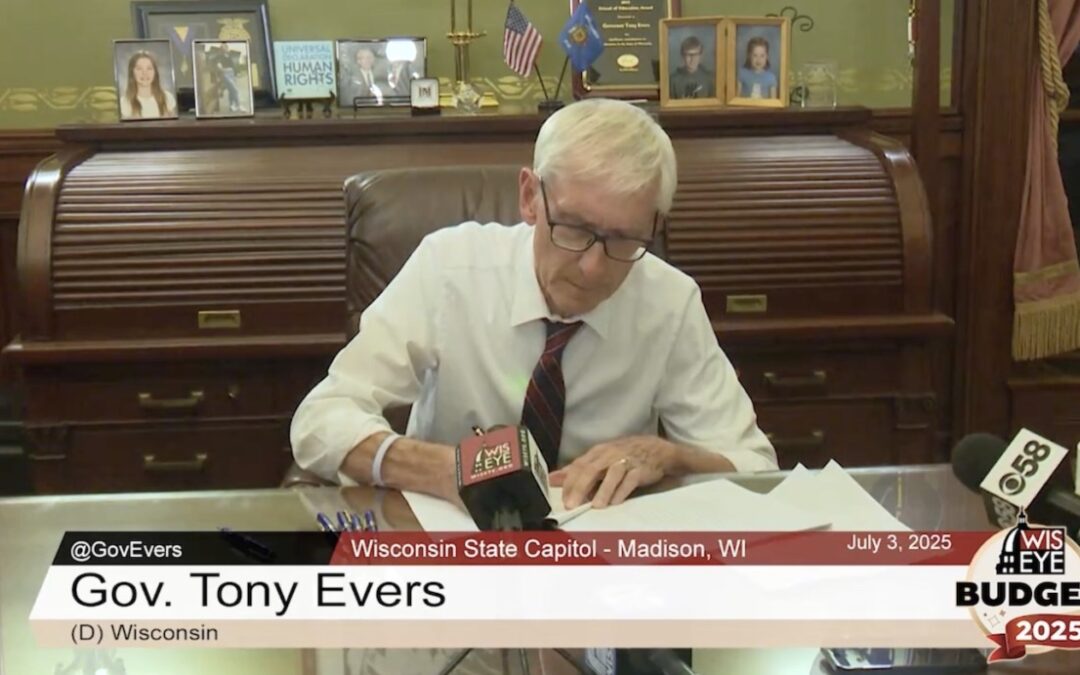
(Image via Pexels)
Ask any working parent in Wisconsin if childcare costs too much and the odds are good they’ll say yes. They’ll probably also say it’s hard to find, especially since quality facilities are closing due to budget restrictions and the rising stress levels that go along with them.
“Families seeking care often are faced with the choice of working or not,” said Stephanie Kober, Early Childhood Director of Growing Tree CDC in New Glarus. “Often the cost of childcare outweighs the pay that would be coming into the house. This is dramatic if the family is a single parent household.”
Gov. Tony Evers called this out when he toured a closing Waupaca County childcare facility in July.
“To see a great place like this and see people doing good work—and they are closing because we can’t get the public to understand how important early childhood care is,” Evers said. “We’re short workers all across the state and as these things happen, mom or dad is going to have to leave the workforce. It’s not sustainable…it’s going to happen more and more often.”
In 2023, the average family in Milwaukee County spent about $12,142 a year on childcare for a single 4-year-old, and roughly $16,236 for an infant. Reports show about nine in 10 working parents are losing productivity and time on the job due to the financial burden of childcare—and many ultimately have to give up career opportunities to stay home.
Wisconsin families have asked the state government to intervene—and many are trying. But, Kober said, assistance programs aren’t working well for everyone.
“If a parent makes too much, they can’t get assistance from the state for childcare. Then the entire bill is on them, and with their other bills, childcare unfortunately is often sacrificed. If they don’t make enough, and are lucky to obtain childcare assistance, the childcare hours allotted rarely cover the need and the assistance still leaves a copay.”
At the same time, childcare workers are also struggling. Many earn about $12 an hour, often lack benefits, and work in an industry that’s severely understaffed.
“This is the reality of a lack of public investment in early education,” childcare worker Sarah Kazell said in an interview with the Wisconsin Examiner. “Women like me are earning a poverty wage to do it. And we are effectively subsidizing the ability for any middle class family to afford care at all. That’s the subsidy program that America has right now — it’s exploitative labor of the people who provide the care.”
Kober said it’s a lose-lose cycle.
“For providers, this makes the job unstable. Because people are so quick to come and go from a center, the center often has to change scheduling and staff when numbers change so often. This causes a stress on the staff and at some point, they break and burn out. When turnover like this happens, centers are now faced with staff shortages, and next there is not enough staff to keep the center open.”
What can be done in Wisconsin?
Hard-working Wisconsinites trying to build good lives for their families are waving the white flag. Childcare workers are begging for help. And everyone can see this is a crisis that could convince people with kids or future plans for kids to leave the state.
Kober said the situation is not entirely hopeless.
“At the federal level, the Biden-Harris administration has proposed a plan that guarantees affordable childcare for families making up to $200,000 per year. This is the bold action we need to make sure families aren’t having to make the choice between participating in the workforce or enrolling in childcare programs,” she said.
In addition to that, Gov. Evers’ Democratic administration has been working on a solution. His administration has repeatedly requested that the Republican-led Joint Finance Committee release $25 million in already-approved funds that would help support the childcare and tourism industries in Wisconsin.
If the funding were to finally get approved, $15 million would go toward the Child Care Counts Program in collaboration with the Department of Children and Families (DCF). The money would be provided in ongoing monthly payments that would give facilities “the financial stability they need to stay open, to recruit and retain qualified staff, and to continue providing high-quality care for children.” Such stability and staffing opportunities, the thinking goes, would help drop or stabilize the cost of childcare for families, while offering them more chances to find providers.
“It’s no secret that without sustainable, meaningful investments, our state’s child care industry faces imminent collapse, which would be a disaster for our kids, our working families, our workforce and economy,” Evers said.
But there’s one group of people standing in the way of Evers’ plan: The 12 Republicans on the Wisconsin Joint Finance Committee.
These Republicans, including co-chairs Rep. Mark Born (R-Beaver Dam) and Sen. Howard Marklein (R-Spring Green), have been in a stalemate with Evers over funding for childcare solutions. They’re allowed to hold up funding because they’re utilizing rules they set themselves.
Now, though, Evers has filed a lawsuit challenging that conflict of interest—which means that the Wisconsin Supreme Court will ultimately be asked to determine if the committee’s rules are constitutional or if they violate the state’s constitution.
There are two possible solutions to the childcare crisis in Wisconsin right now. One includes that ruling from the Wisconsin Supreme Court. If the court rules in Evers’ favor, they would “limit the Legislature’s ability to throw out certain policy decisions made by state executive branch agencies,” and make it so Republicans wouldn’t be able to maintain the current stalemate.
Or, the people of Wisconsin could vote in a new crop of legislators. All 99 seats in the Wisconsin State Assembly and 16 seats in the Wisconsin Senate will be up for election on Nov. 5. (Find out if you’re registered and who’s on your ballot here.)
READ MORE: Why small business owners want their employees to have affordable healthcare

It’s what’s not in the state budget that is generating both anger and 2026 candidates
From homeless veterans to childcare to school funding, there are a lot of missing numbers that have some people talking and others taking action....

You’ve never seen a Wisconsin state budget like this. Here’s why.
With unprecedented speed, a bipartisan bill passes the Senate and Assembly and gets the governor’s signature—all in one night to avoid looming...

Will Gov. Tony Evers run for a third term? Here’s why he will—or won’t.
Wisconsin’s governor has public support and his party’s backing, but the Biden 2024 campaign has some Democrats ready to ditch what’s known for...

Evers: ‘I’m excited to be introducing the most pro-kid budget in state history’
The Wisconsin governor’s 2025 state budget address details his funding priorities, including measures to eliminate taxes on tips and...





